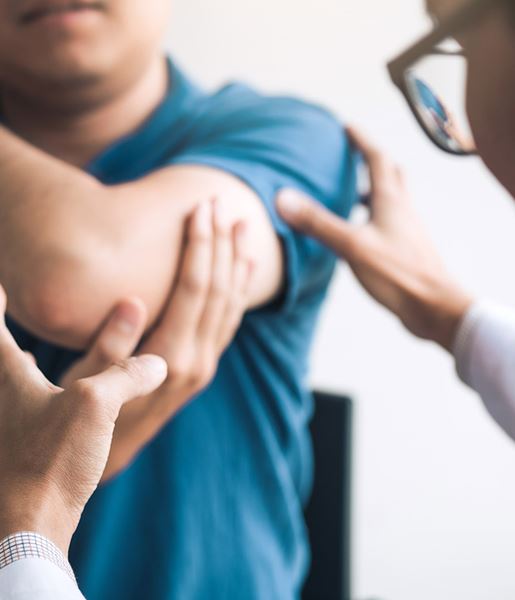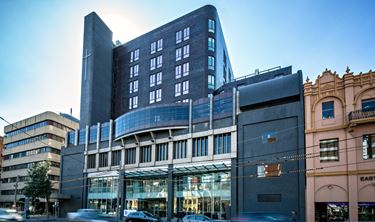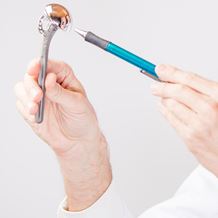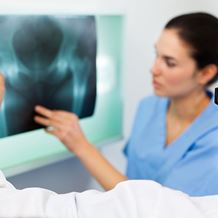Shoulder Impingement
- Home
- Services
- Orthopaedics
- Shoulder Orthopaedics
- Common Shoulder Conditions
- Shoulder Impingement
What is shoulder impingement?
Shoulder impingement is a very common cause of shoulder pain, particularly amongst athletes. Sometimes referred to as “Swimmer’s Shoulder”, it occurs when there is not enough space in the shoulder joint for complete ease of movement – usually as a result of overuse. Instead, the rotator cuff catches or rubs against the top of the shoulder, irritating the bursa and causing an impingement.
Symptoms include sudden shoulder pain on lifting your arms, a feeling of weakness or a pain that moves from your shoulder down the side of your arm. The pain also tends to worsen at night. Shoulder impingement commonly happens in conjunction with shoulder bursitis and rotator cuff damage.
How is it treated?
Repeated action from activities such as swimming, tennis and golf are common causes of shoulder impingement, along with jobs that require heavy lifting and repetitive arm action. Your doctor may require some additional testing such as an MRI or X-ray to confirm the diagnosis before deciding on the appropriate course of action. If traditional methods such as physiotherapy, rest and pain relief medication do not relieve the symptoms, your doctor may recommend surgery to restore mobility and function to the shoulder joint. This procedure is known as an arthroscopic subacromial decompression, and it aims to increase the space between the top of the shoulder (acromion) and the rotator cuff, by removing the bursa along with any bony spurs that are hindering movement.
How long does it last?
Shoulder impingement symptoms can develop gradually over weeks and months, and if left untreated will continue to worsen over time. Following a treatment plan will improve the condition within a few weeks. If surgery is required, it can take up to 6 weeks to return to normal activities, with a full recovery expected within 6 months.

Shoulder replacement approaches
Find a hospital with orthopaedic services
Our Hospitals



